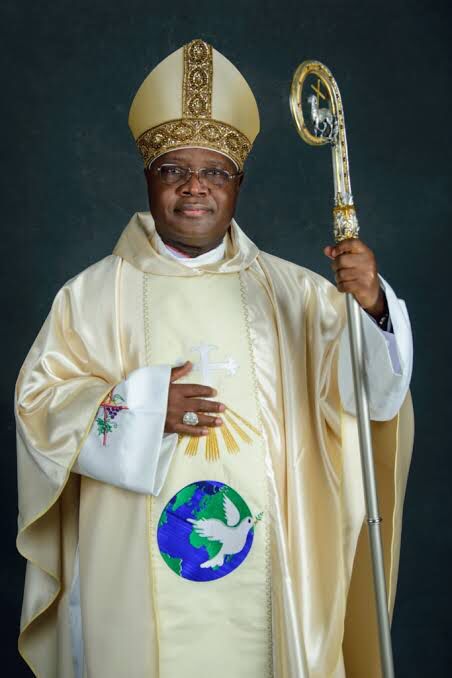The economist and former manager of Divertia Jorge González-Palacios (Gijón, 1971) assumes in this mandate an unusual position in a city council: Councilor for Institutional Relations. After a year in the position, he defends the work of a “transversal” team that has “unlocked” projects such as the agreement with the Cajastur Foundation to exhibit in Revillagigedo and the budding commercial relationship with the Chinese city of Yantai. The mayor also leads the organization of Armed Forces Day (DIFAS).
–After a year in government, how would you define the purpose of your council?
–A town hall must adjust to the times. The Mayor insisted a lot from the beginning that to make the most of Gijón’s potential, the administration has to be agile, and we are at a time where a large part of the projects that mark the future of cities involve public-private collaboration. , so we understood that it was essential to have a council that would channel this issue and give it agility. An example was the agreement signed with the Cajastur Foundation to be able to enjoy the municipal museum collection in a privileged space such as the Revillagigedo Palace. It is fortunate to have a council that can dedicate itself to these tasks.
–How have you lived this last year?
–I consider myself privileged, because I think I have the most beautiful job you can have in the city: being a bit of external relations for the city council and the city.
–Perhaps yours is also a lesser-known councilorship or whose mission some neighbors do not understand.
–Yes, although I think other people will see it as something very normal, because all private companies have communication and institutional relations departments. The only thing we are doing is adapting that structure within the City Council.
–One of the last events organized by your team was the meeting of the Federation of Associations of Seniors of the Principality of Asturias (Fampa).
–And it was a success. Our elders left very happy and Gijón has shown that it is more than prepared to coordinate large-scale events that have a very positive impact on the economic fabric. We managed to get almost 4,000 people to fill the city’s restaurants.
–How do you decide which issues your council intervenes in? For example, why was this Fampa meeting not managed by Visit Gijón?
–We try to fill the gaps that other council departments cannot fill, but in no case do we get involved in working with entities that are already directly related to a council department. For example, I have no relationship with Asprocon because I know that he is already a contact for the Urban Planning Department. We go where other council departments do not go; We perform there.
–Was this how the relationship with the Chinese city of Yantai was developed?
–Yes, it was a direct management of this department. Upon arriving at the City Hall we found contact with this Chinese city initiated, but completely paralyzed. Now we have been working for months on a project that gives Gijón the possibility of opening up to a very powerful market. After the visit of the Yantai delegation to Gijón in December, the entire expedition was delighted. Yantai, despite its millions of inhabitants, does have certain similarities with Gijón: if you look at photographs of the city it seems like a kind of modern Gijón. We created a working group with the FADE, the Chamber of Commerce, the University of Oviedo and some companies in the Science Park to make the most of a visit that we are going to return to them in June, between the 15th and 24th. We already have confirmed meetings between Asturian and Chinese companies with common interests.
–With what type of companies?
–Especially, with industrial companies.
–And will other members of the government go to the June visit?
–We are members of this council and we will take the companies. We have a marked agenda.
–Is the idea that Yantai twins with Gijón?
–If commercial proposals and activities arise as a result of this, the city would meet all the requirements for this, but the purpose is to seek commercial synergies. Twinning may be a consequence, but it is not the objective.
–He commented on the need to review relations with the sister cities.
–Yes, we are twinned with six cities and we have contacted five: Niort (France), Havana (Cuba), Albuquerque (United States), Puerto Vallarta (Mexico) and Esmara (Sahara). The sixth is Novorossiysk, a Russian city that is now at war and with which it makes no sense to have contact. We have already received a visit from the Cuban consul and what we are most advanced about are contacts with Niort, which is where we hope to promote cultural activities very soon.
-Cultural activities?
-Yeah. Niort does not have an overly important business network, but we are interested in its cultural activities and the possibility of student exchanges, because it is within easy reach of traveling by bus. In the coming months we will try to promote a plan through a European project. Regarding the other cities, the only ones it has been very difficult for us to contact so far is Albuquerque.
–What was the relationship with those cities like when you arrived at the City Council?
–For years it was totally paralyzed. There was nothing.
–The big event of the month will be DIFAS.
–It is probably the largest event organized each year in Spain and involves thousands of people. It is a great challenge, but also a sign that Gijón has the capacity to organize high-level events. We will make a detailed presentation soon.
–How is the contract for the bullfighting fair progressing?
–We hope to sign the contract with Circuitos Taurinos before the end of May, because we have to wait for the allegations period.
–Was there any?
–No, and we don’t expect there to be either. After signing the contract, we will collaborate with the businessman to present the posters. The bullfighting fair, we always said, is above all about the fans and the clubs, and we would like the presentation to also be a recognition of them. After recovering the fair last year, I think we had high-level celebrations and we trust that the project presented by Circuitos Taurinos, which was the best valued by the advisors, will help us consolidate it as the benchmark bullfighting fair in northern Spain and even gradually increasing its potential with more celebrations in the next editions, but always without lowering its quality and in a sustainable way.
–The Principality is debating banning the entry of minors to bullfighting fairs.
–We trust that the fair can continue to grow, we are convinced that it is possible. I respect that debate and, as it does not fall within our competence, the only thing we can do is wait.
–Regarding Revillagigedo, the Mayor commented that they are already working on an exhibition for next year. Will the agreement be renewed?
–The spirit of the agreement is that we will tacitly renew it every year. There is no type of problem.
We did not sign it with the idea that it would last six or ten months, but so that it would continue over time. What we have to achieve, and we will do so, is to offer them (the Cajastur Foundation) a top-level cultural offer. They, in that case, will have no problem so that we can continue enjoying the palace. I am very grateful for the willingness of the Cajastur Foundation and Carlos Siñeriz in particular. We are convinced that this collaboration will last over time.
–Is there any other plan underway?
–We are present in the two main networks of European cities, Atlantic Cities and Eurocities, and we have activated stalled projects such as the Quini statue and the sportinguista walk of fame. And we continue with the day-to-day work, which implies permanent institutional representation. Something that has been able to be promoted thanks to this department has been that: being able to receive and listen to all those who want to develop projects in Gijón.

